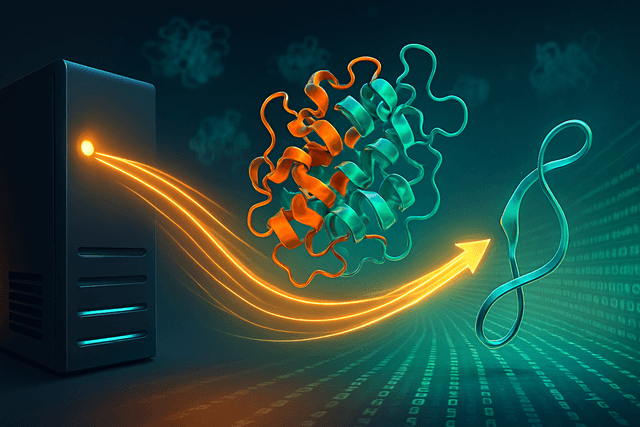Microsoft Research has unveiled BioEmu 1, a groundbreaking AI system that is reshaping genomics research through dramatically accelerated protein folding analysis.
The deep learning model can generate thousands of statistically independent protein structures per hour on a single GPU, operating at speeds ten times faster than AlphaFold 2, which was previously considered the gold standard in the field. While AlphaFold revolutionized static protein structure prediction, BioEmu 1 takes this further by modeling the dynamic behavior of proteins—capturing the full range of conformations proteins naturally adopt.
BioEmu 1 achieves this remarkable performance by integrating three critical data sources: AlphaFold Database structures, an extensive molecular dynamics simulation dataset, and experimental protein folding stability data. The system's efficiency is so remarkable that university laboratories can now run complex virtual mutagenesis sweeps during short breaks, tasks that previously required days or weeks of computation.
"Protein dynamics emerges as the next endeavor in discovery following precise structure prediction," notes Seoul National University Professor Martin Steinegger. "Through BioEmu, scientists can now access quick free-energy landscape sampling operations for proteins because of deep-learning technology."
The technology's impact extends beyond academic research. In drug discovery, BioEmu 1 can identify cryptic binding pockets that are often difficult to detect with conventional methods, offering new targets for therapeutic intervention. The system also accurately predicts protein stability through folding free energy calculations that match experimental assessment results.
Microsoft has released BioEmu 1 as open-source software, contrasting with some competitors' more restrictive approaches. This decision enables worldwide researchers to advance their studies of protein dynamics, potentially accelerating biomedical discoveries including drug design progress. As of July 2025, early adoption suggests the technology could reduce drug development costs by up to 30%, according to industry analysts.

